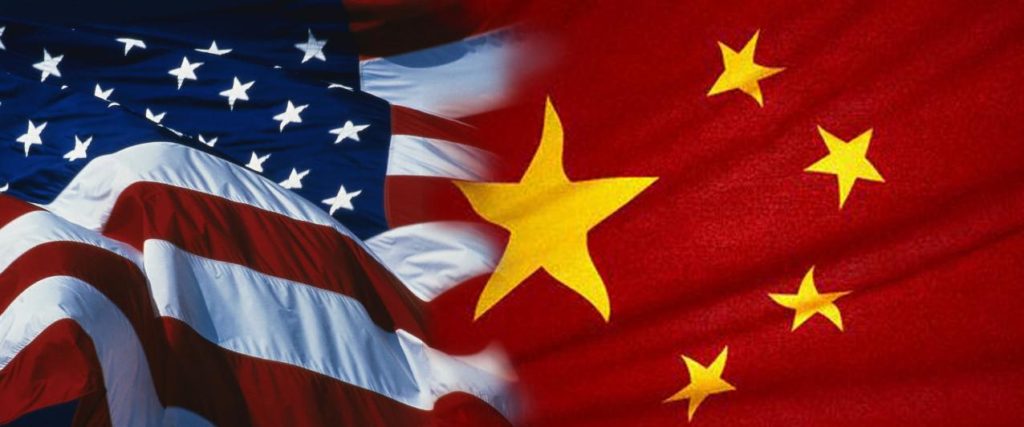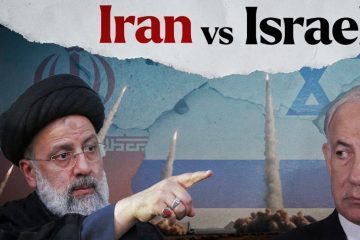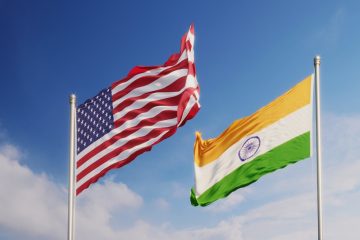China is crushing the U.S. in ‘economic warfare’

As China has risen to become the world’s No. 2 economy, it has repeatedly used its business and financial clout to get what it wants on the world stage, say foreign policy experts Robert Blackwill and Jennifer Harris.
When Norway gave Chinese dissident Liu Xiaobo the Nobel Peace Prize in 2010, China dramatically scaled back its salmon purchases from Norway and halted trade talks. When tensions escalated between the Philippines and China over a territorial dispute in the South China Sea, China let Philippine bananas rot in its ports.Over the years, Beijing has retaliated so strongly by cutting (or threatening to cut) business ties with any nation recognizing Taiwan that only 22 nations still formally call Taiwan the “Republic of China.”
These are only a few examples that Blackwill and Harris lay out in their new book, “War by Other Means.” Their thesis is simple: The U.S. should be using similar tactics to China’s — and doing it better. Right now, America is getting crushed.
Related: Why China wants U.S. military jet engines
“Despite having the most powerful economy on earth, the United States too often reaches for the gun instead of the purse in its international conduct,” they write.
China doesn’t just use punitive measures to get what it wants. It routinely gives loans and aid to countries like Venezuela that are at odds with the United States. Beijing also wields its massive sovereign wealth fund to invest — tactically — in parts of the world where it also wants to build political ties.
The Chinese even engage in “soccer stadium diplomacy” where they fund and construct brand new stadiums, mostly in African countries with natural resources that China wants.
The U.S. used to flex its economic muscle more
The U.S. used to excel in this arena. As most American school children know, Thomas Jefferson nearly doubled the size of the nation with the Louisiana Purchase. He didn’t go to Paris with an army, he went with a checkbook. For $ 15 million, the results were effective.
Similarly, Abraham Lincoln threatened Britain that if it sided with the Confederacy during the U.S. Civil War, it would lose billions that it had invested in U.S. assets. And when Britain invaded the Suez Canal in 1956, Dwight Eisenhower (himself a decorated WWII veteran) threatened to collapse the British pound if the U.K. didn’t withdraw.
“Geoeconomics tends to be easier and cheaper” than military conflict, Blackwill and Harris write in “War by Other Means.” It’s one of the reasons China, Russia and others are doing it.
A critical time
But in the past 30 years, Blackwill and Harris argue the U.S. has largely stopped using geoeconomics, preferring military force instead. The one exception is sanctions like those against Iran.
It’s a particularly critical time to change that approach, they say, as markets become more global (i.e., what happens with Brexit impacts the world), and countries are reconsidering which economic tie is more important to them: the U.S. or China?
These ideas aren’t Republican or Democrat, the authors argue. Blackwill was a senior official in President George W. Bush’s White House. Harris served in President Obama’s administration in both the State Department (under Hillary Clinton) and the National Intelligence Council.
Related: 71% of Americans believe the economy is rigged
Of course, much like military campaigns, economic warfare doesn’t always work out. China is learning that in South America. Its plans to build a huge train line running from coast to coast of the continent are backfiring as Brazil’s economy tanks and its political system is in disarray after a massive corruption scandal. All the money China pumped into Venezuela is now in doubt as well with the economic turmoil there.
Still, China is gaining a reputation as the lender of last resort. That gives it a lot of power on the world stage.
“Nations do not fear China’s military might; they fear its ability to give or withhold trade and investments,” wrote Leslie Gelb, president emeritus of the Council on Foreign Relations, in an essay in the magazine “Foreign Affairs” in 2010.










